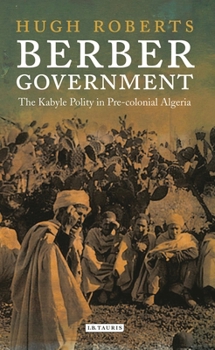Berber Government: The Kabyle Polity in Pre-Colonial Algeria
(Part of the Library of Middle East History Series)
Select Format
Select Condition 
Book Overview
The Berber identity movement in North Africa was pioneered by the Kabyles of Algeria. But a preoccupation with identity and language has obscured the fact that Kabyle dissidence has been rooted in democratic aspirations inspired by the political traditions of Kabylia itself, a mountainous region in northern Algeria. The political organisation of pre-colonial Kabylia, from which these traditions originate, was well-described by nineteenth-century French ethnographers. But their inability to explain it led to a trend amongst later theorists of Berber society, such as Ernest Gellner and Pierre Bourdieu, to dismiss Kabylia's political institutions, notably the jema'a (assembly or council), and to reduce Berber politics to a function of social structure and shared religion. In Berber Government, Hugh Roberts explores the remarkable logics of Kabyle political organisation and the unusual degree of autonomy it enjoyed in relation to both kinship divisions and the religious field. Combining political anthropology and political and social history in an interdisciplinary analysis, this book further offers a pioneering account of the history of Kabylia during the Ottoman period and establishes a radically new way to understand the complex place of the Kabyles in Algerian politics..
Format:Paperback
Language:English
ISBN:1784537667
ISBN13:9781784537661
Release Date:March 2017
Publisher:I. B. Tauris & Company
Length:352 Pages
Weight:0.25 lbs.
Dimensions:1.1" x 6.1" x 9.2"
Customer Reviews
0 rating





